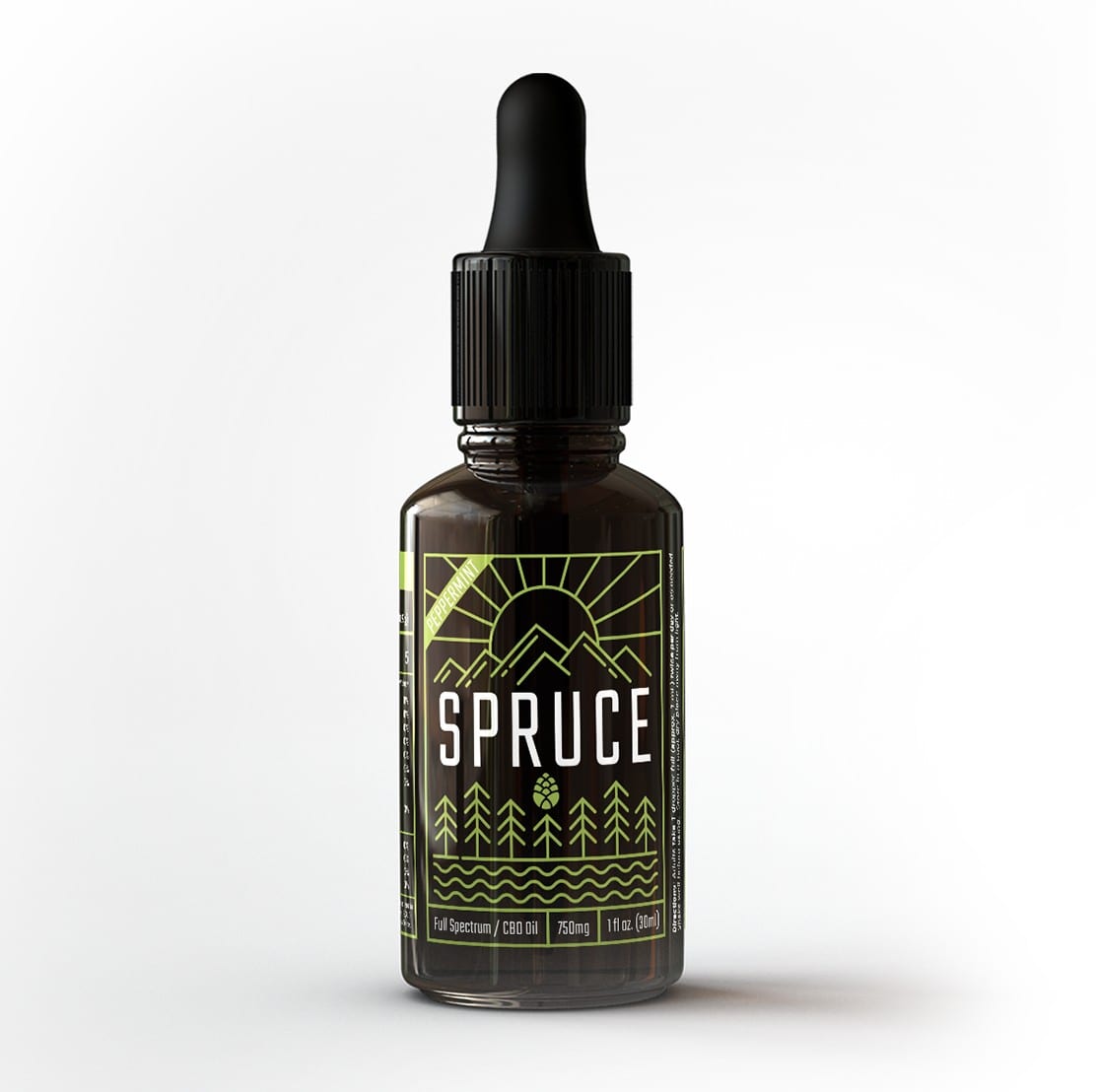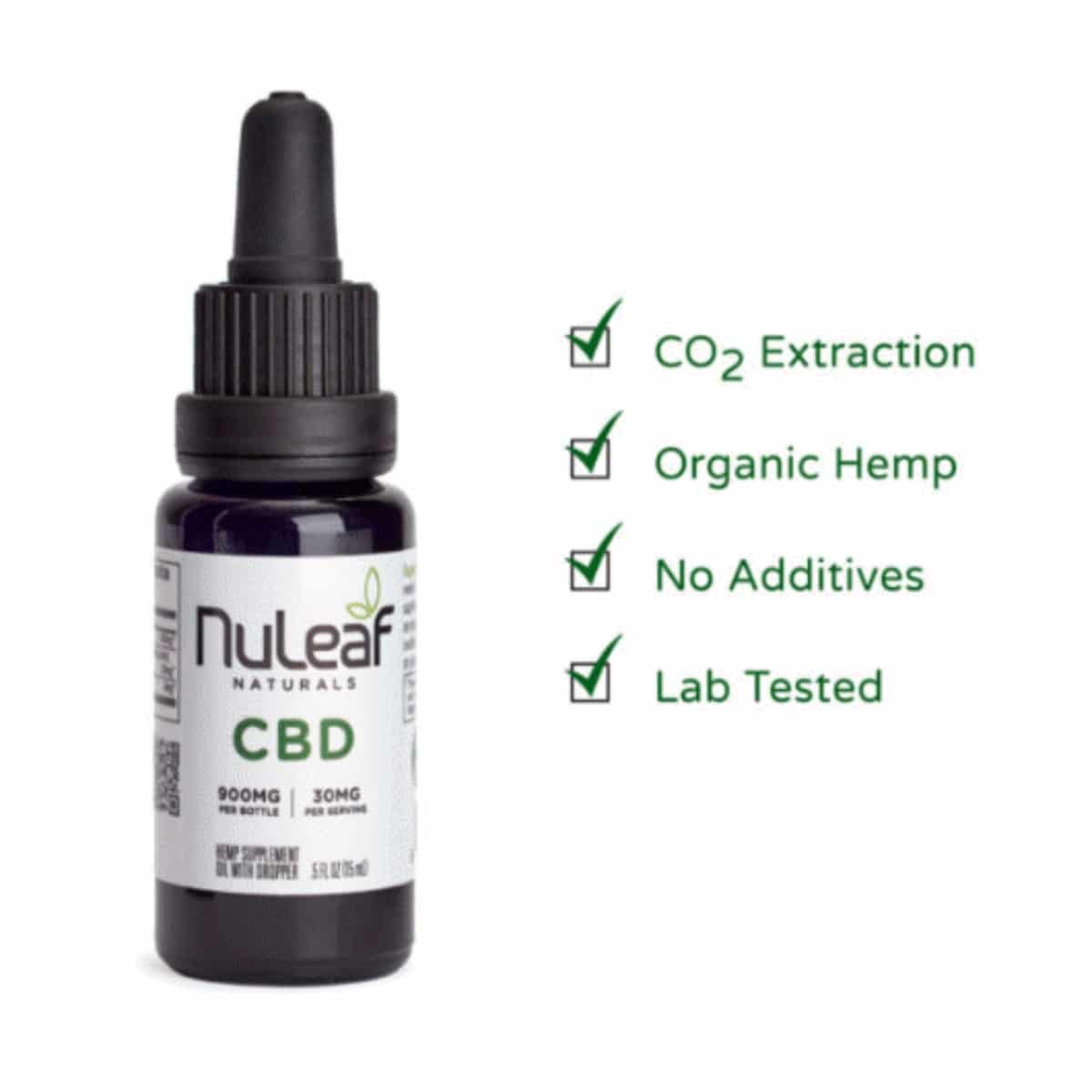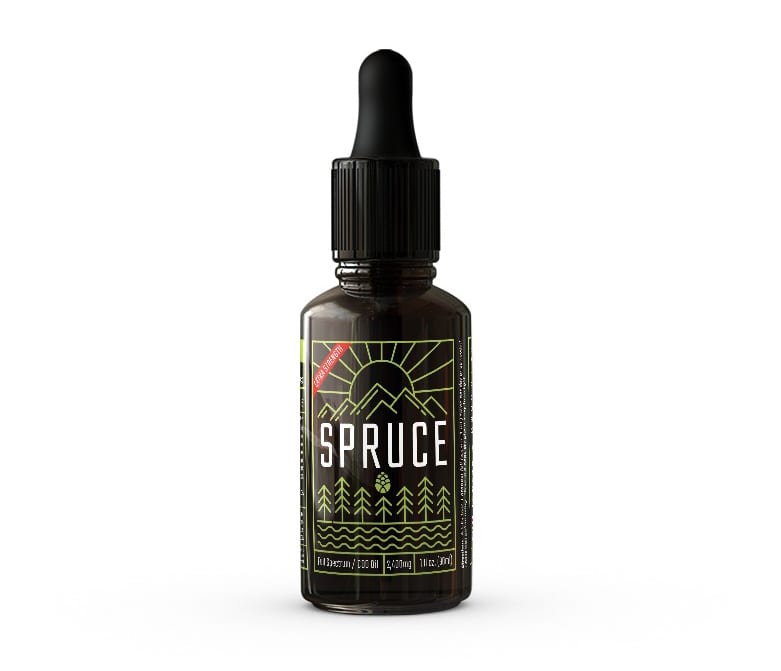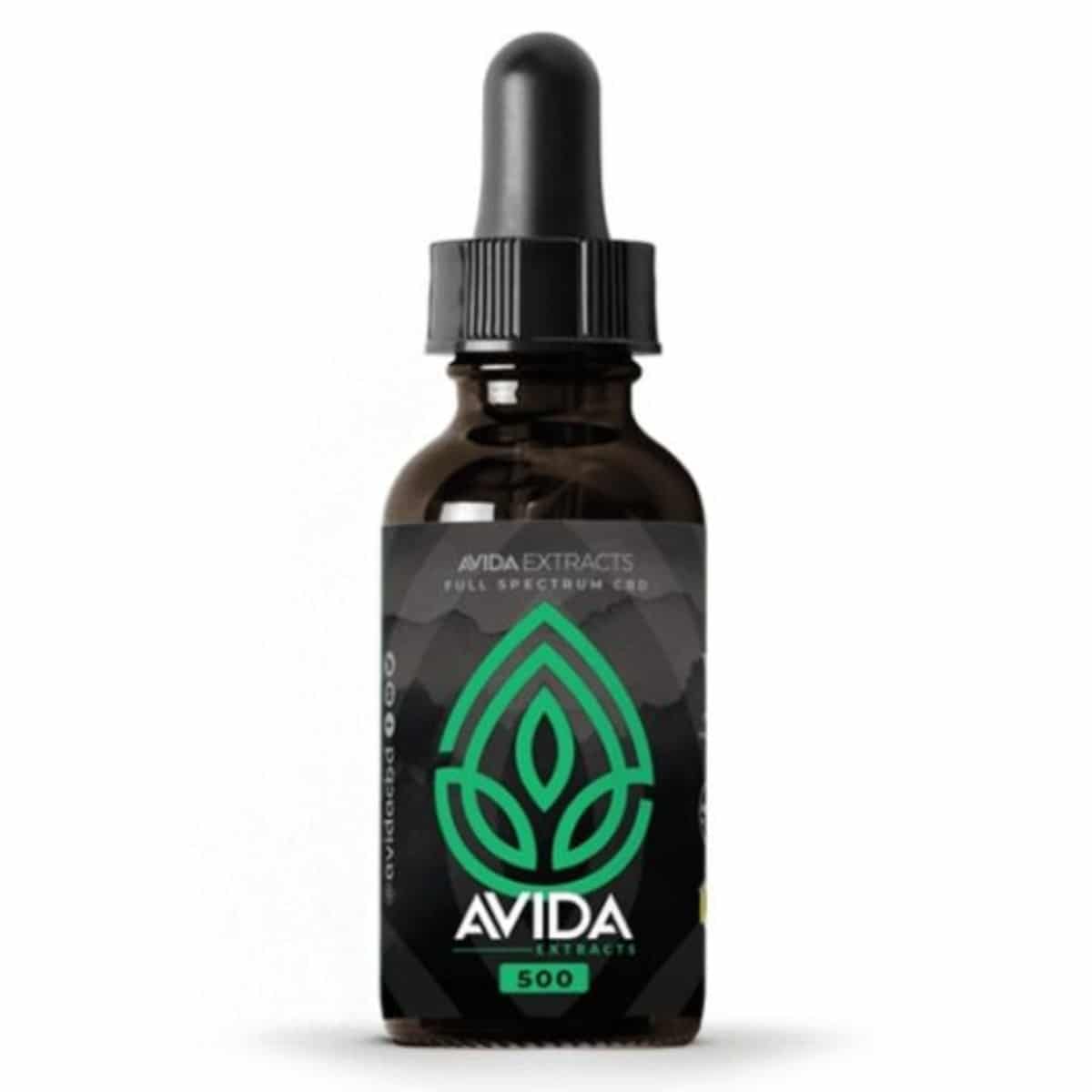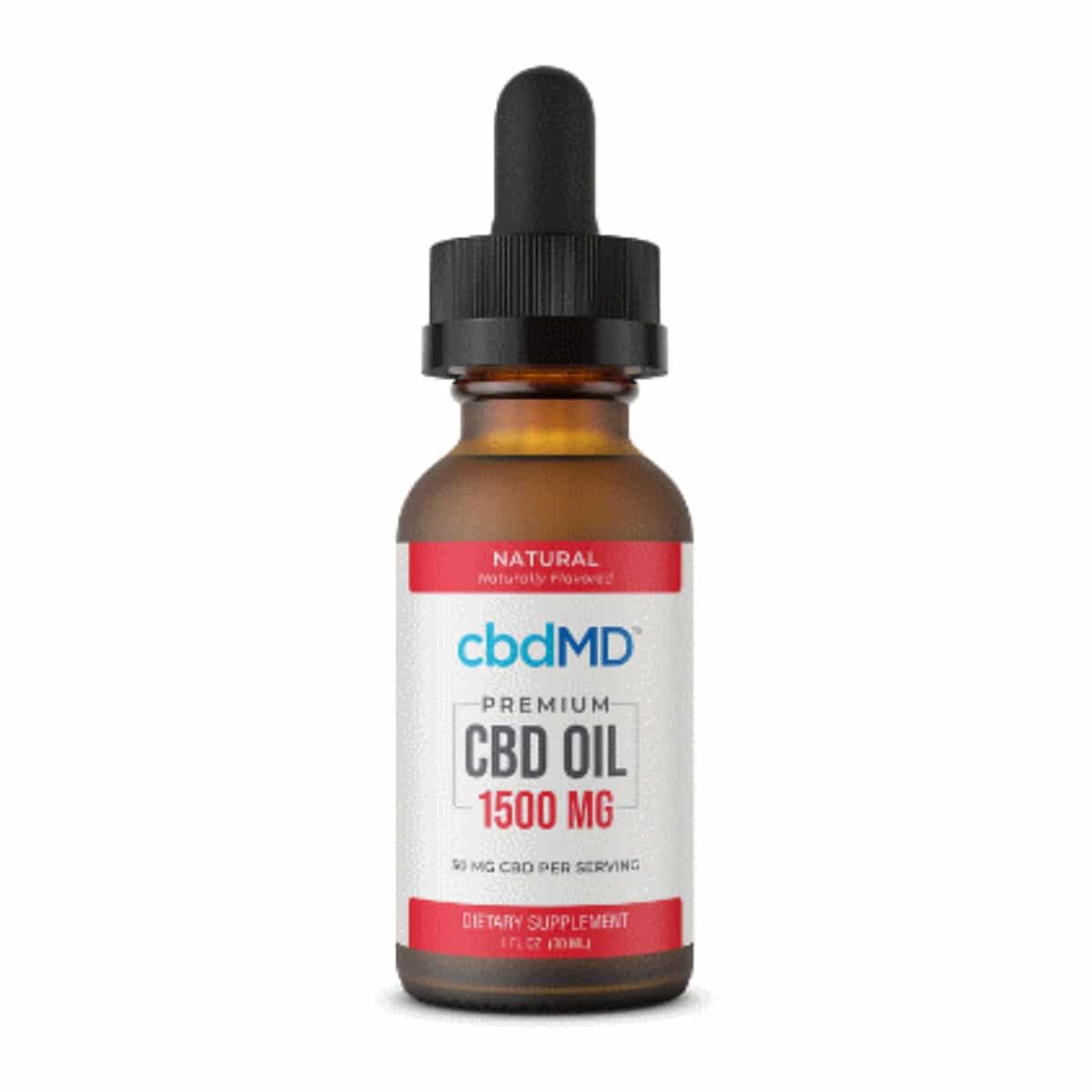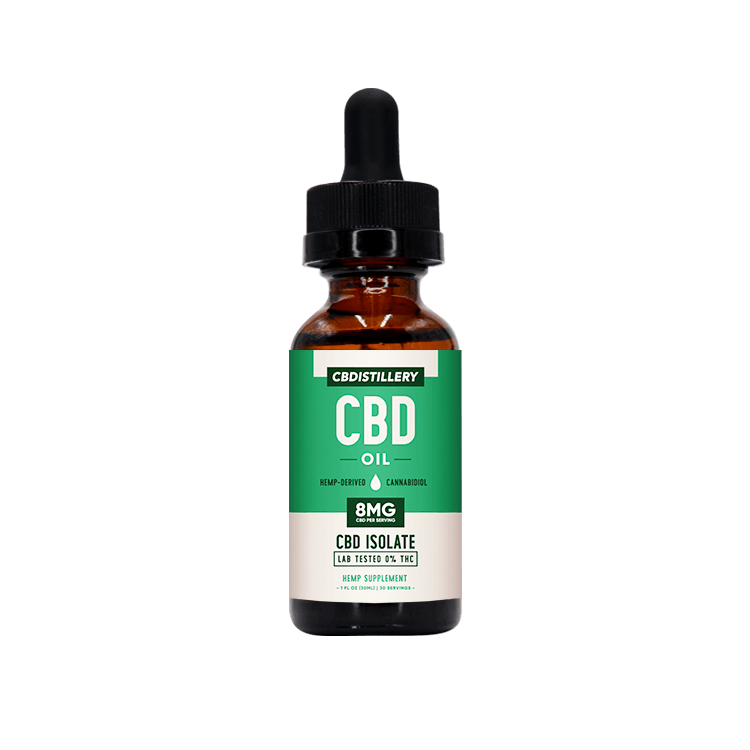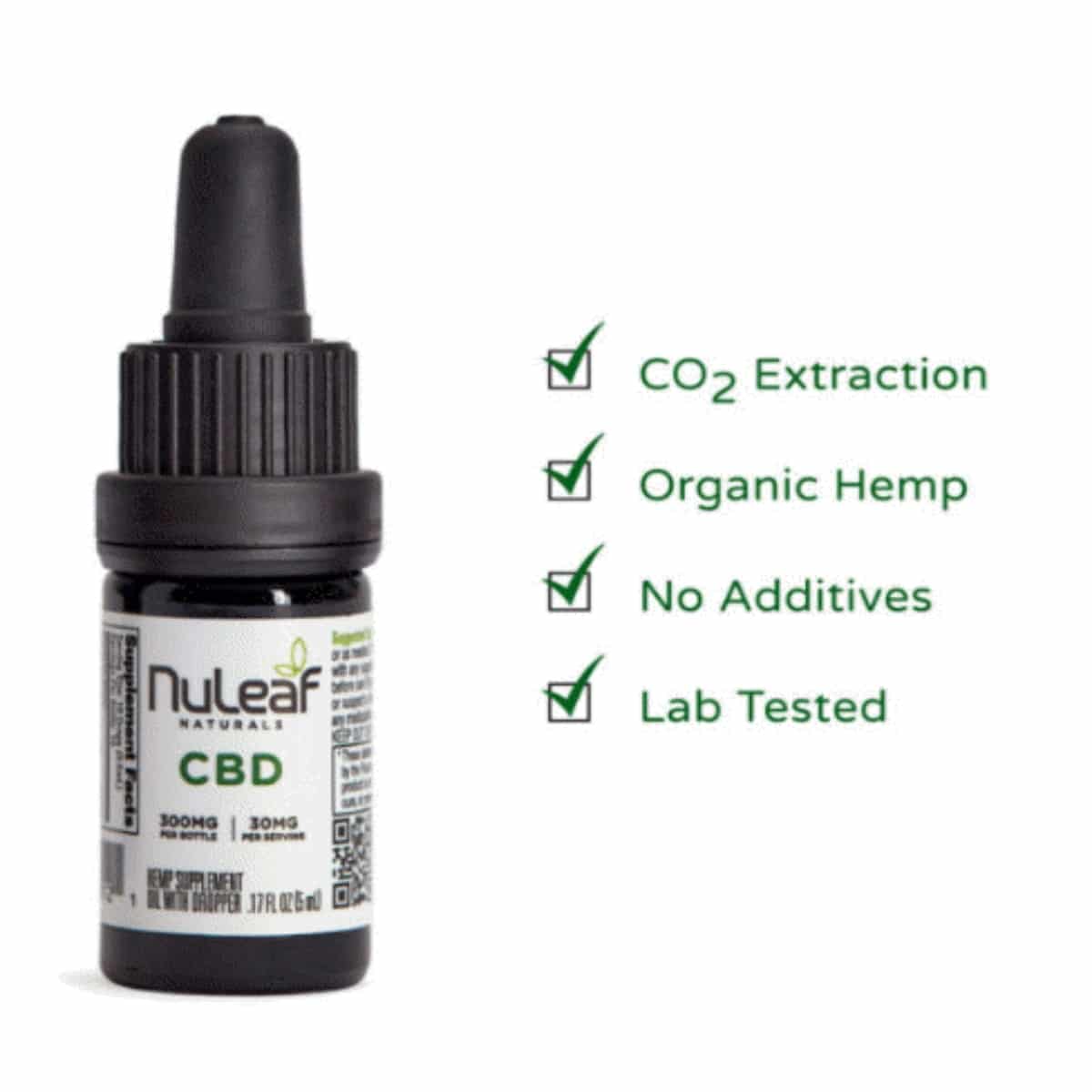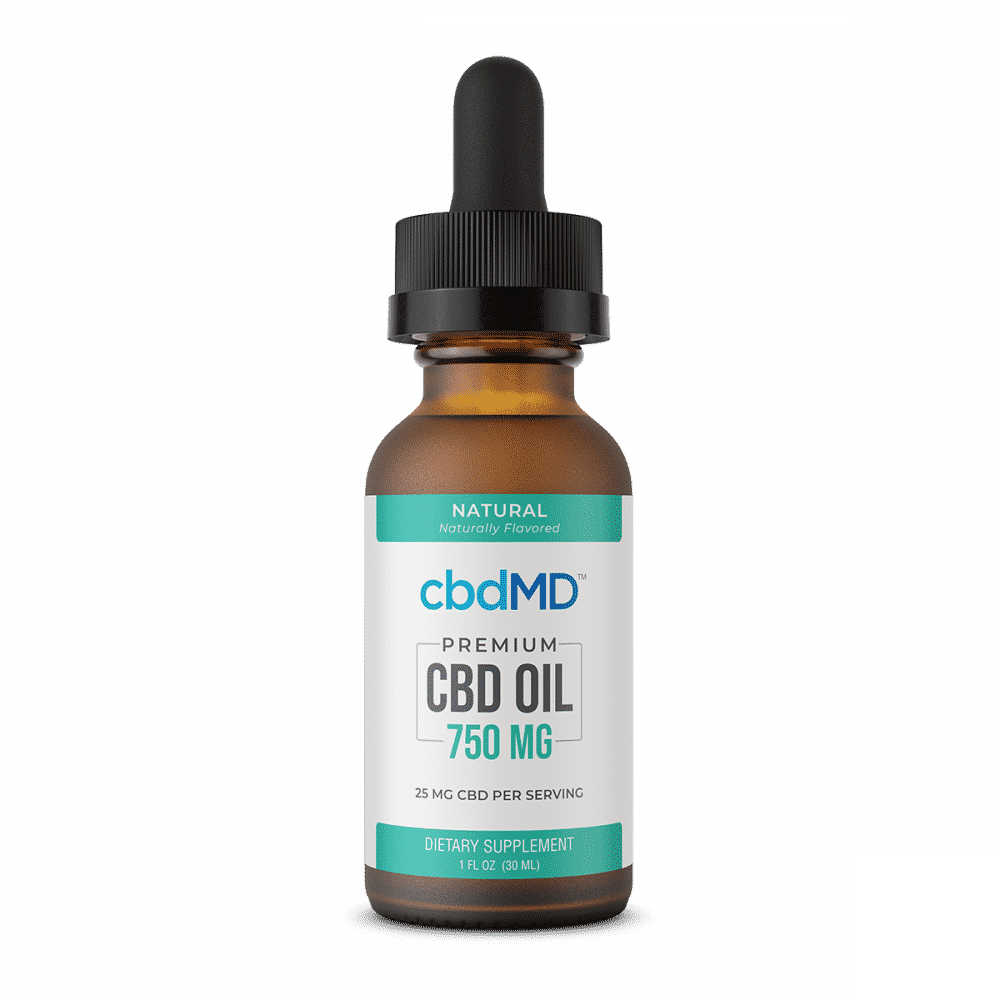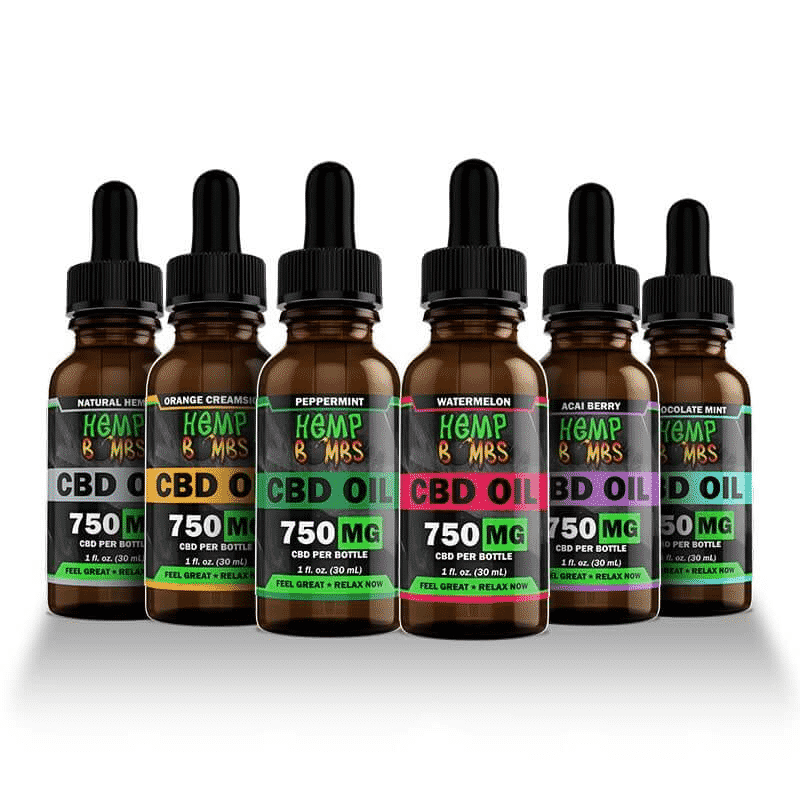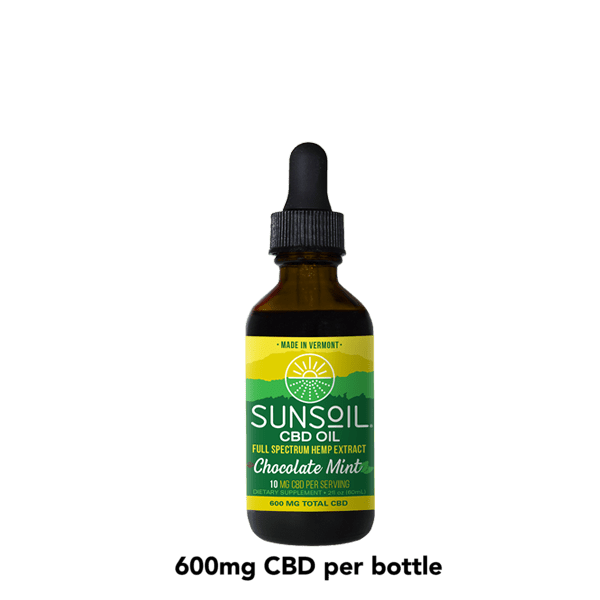Best CBD Oil for Lungs
Are you looking for effective alternative methods to relieve the symptoms of lung conditions? CBD Clinicals aims to help you enhance your wellness and find the best cannabidiol (CBD) oils to help with symptoms of lung conditions.
Compare the Best CBD Oil for Lungs in 2022 2025
- Spruce 750mg Lab Grade CBD Oil Editor's Pick
- NuLeaf Naturals 900mg Full Spectrum Hemp CBD Oil Best Organic
- Spruce 2400mg Lab Grade CBD Oil Editor's Pick
- Avida Full Spectrum CBD Oil Tincture 500mg Best Seller
- cbdMD CBD Oil Tincture Natural 1500mg Best Natural Alternative
- CBDistillery THC Free CBD Oil Tinctures Best THC-Free
- cbdMD CBD Oil Tincture Natural 750mg Best Customer Rated
- NuLeaf Naturals 300mg Full Spectrum Hemp CBD Oil Best Starter
- Hemp Bombs 750mg CBD Oil Best Flavor Range
- Sunsoil CBD Oil Drops, Chocolate Mint Flavor Best Allergy Friendly
The Best CBD Oil for Lungs
1. Spruce 750mg Lab Grade CBD Oil
cbdc overall score
4.8
CBDC Evaluation Table/Score
| Pros | Cons |
|---|---|
|
Mid-strength |
No other flavors |
|
Natural peppermint flavor |
|
|
Made from 100% organic and natural ingredients |
Overview
Each bottle of the 750mg CBD oil tincture contains 25mg of CBD per dropper full. The oil is peppermint flavor to mask any unpleasant tastes related to CBD.
2. NuLeaf Naturals 900mg Full Spectrum Hemp CBD Oil
cbdc overall score
5.0
CBDC Evaluation Table/Score
| Pros | Cons |
|---|---|
|
Pure CBD hemp |
No other flavors |
|
All natural |
|
|
Approximately 300 drops total |
Overview
Natural remedy for various illnesses. NuLeaf Naturals’ CBD oil is a whole-plant extract containing a full spectrum of naturally occurring synergistic cannabinoids and terpenes.
3. Spruce 2400mg Lab Grade CBD Oil
cbdc overall score
5.0
CBDC Evaluation Table/Score
| Pros | Cons |
|---|---|
|
Extra Strength |
Tastes bitter |
|
No artificial flavoring or colors |
No THC-free option |
|
Made from 100% organic and natural ingredients |
Overview
The largest bottle of CBD oil that Spruce offers contains 2,400mg of CBD. This is full-spectrum CBD oil, which is the maximum possible potency. Each high potency dropper full contains 80mg of CBD. There are no flavorings in it, which allows for the most CBD to fit in the 30ml bottle.
4. Avida Full Spectrum CBD Oil Tincture 500mg
cbdc overall score
4.6
CBDC Evaluation Table/Score
| Pros | Cons |
|---|---|
|
Light Spearmint flavor |
No other flavor |
|
Non-THC, Non-detected in drug test |
Overview
Avida Extracts Full Spectrum CBD oil is the latest iteration of the brand’s advanced Avida CORE Spectrum technology. They use a proprietary full spectrum blend, resulting in the highest naturally occurring Phyto-cannabinoids and Terpenes with THC (<0.3) to support your health.
5. cbdMD CBD Oil Tincture Natural 1500mg
cbdc overall score
4.7
CBDC Evaluation Table/Score
| Pros | Cons |
|---|---|
|
Various delicious flavors to choose from |
cbdMD uses MCT as its carrier oil so individuals who are allergic with coconuts should consider other brand options |
|
Has vegan, organic, and gluten-free ingredients |
|
|
Free shipping for this particular product within USA |
|
|
World-class customer service team |
Overview
cbdMD’s CBD oil tinctures are made using only CBD sourced from medical hemp and MCT oil as a carrier oil. Tinctures are offered in orange, mint, natural, and berry flavors. Safe for daily use, the oil tinctures are packaged with a built-in rubber dropper to adjust CBD dosage easily. The packaging is made to be easy to transport and discreet to use.
6. CBDistillery THC Free CBD Oil Tinctures
cbdc overall score
4.4
CBDC Evaluation Table/Score
| Pros | Cons |
|---|---|
|
60-Day Satisfaction Guarantee |
Dropper is a bit shaky |
|
Various strengths |
|
|
Oil extracted from aerial plant parts of US grown industrial hemp |
|
|
Sourced from non-GMO industrial hemp grown in the USA through natural farming practices |
Overview
CBDistillery’s Isolate CBD Oil Tinctures harness the power of pure CBD. CBD Isolate Oil Tinctures include 0.0% THC. When you use CBDistillery CBD Isolate Oil Tinctures, you can be assured you’re using the highest quality CBD on the market.
7. NuLeaf Naturals 300mg Full Spectrum Hemp CBD Oil
cbdc overall score
4.6
CBDC Evaluation Table/Score
| Pros | Cons |
|---|---|
|
Pure CBD hemp |
No other flavors |
|
All natural |
A bit pricey compared to competitors |
|
Approximately 100 drops total |
Overview
This is one of several concentrations from NuLeaf Naturals. As the lowest concentration, it is the company’s best option for those new to CBD oil. The product is lab-tested and fully organic. It is full-spectrum, so it contains THC in small quantities.
8. cbdMD CBD Oil Tincture Natural 750mg
cbdc overall score
4.4
CBDC Evaluation Table/Score
| Pros | Cons |
|---|---|
|
Vegan and Gluten free |
Does not ship internationally |
|
Has a third-party lab test |
|
|
Wide variety of CBD strengths and sizes |
Overview
A 750mg bottle of cbdMD’s Broad Spectrum Oil Tincture does not contain THC. It also has a fairly wide flavor range which is perfect for those who prefer other taste. Vegan consumers are considered since cbdMD offers Vegan products. Aside from all of that, another reason why people love cbdMD is because it’s free from harmful chemicals.
9. Hemp Bombs 750mg CBD Oil
cbdc overall score
3.9
CBDC Evaluation Table/Score
| Pros | Cons |
|---|---|
|
Wide variety of flavors |
Incomplete information about the product |
|
Lab test results are complete |
Does not ship to all international countries |
|
30-day money-back guarantee |
Overview
Hemp Bombs offer CBD Oil Tinctures that come in a 30ml bottle containing 750mg of CBD. They provide a wide range of flavors perfect for those that have a knack for sweets. Consumers can safely intake this because it’s free of chemicals and pesticides. Hemp Bombs also offer a 20% off on products upon subscription.
10. Sunsoil CBD Oil Drops, Chocolate Mint Flavor
cbdc overall score
3.6
CBDC Evaluation Table/Score
| Pros | Cons |
|---|---|
|
Sunsoil CBD is committed to providing high-quality products at an affordable cost. |
Product selection is limited. |
|
The company tests its products thrice before making them available to the public. |
The company uses lipid extraction methods. |
|
From cultivation to packaging, everything is done in Sunsoil CBD grounds. |
|
|
Organic and sustainable farming is at the company’s core. |
Overview
The flavor profile is refreshingly sweet, and it balances well with the higher CBD concentration. Promotes the absorption of CBD into your blood circulation.
How CBD Helps With Lungs
CBD has emerged as a potential alternative for a wide range of health conditions. The health benefits of CBD for the lungs may include its anti-inflammatory properties(1).
A medical study published in the Journal of Environmental Sciences in 2017 investigated the endocannabinoid system (ECS)’s potential positive effects on lung inflammation(2).
The ECS regulates several essential functions in the body, including inflammation, pain, appetite, sleep, memory, and mood(3).
The ECS‘ primary components include the endocannabinoids, cannabinoid receptors (CB1 and CB2), and enzymes.
CB1 is responsible for cognitive functions, including movement, thinking, memories, pain, and mood(4). CB2 receptors are closely related to the immune system and inflammation regulators(5).
Neurotransmitters known as endocannabinoids or endogenous cannabinoids bind to CB1 or CB2 receptors. Neurotransmitters are molecules that transmit signals from nerve cells to target cells, such as those in glands and muscles.
The triggering of the receptors activates particular functions of the cannabinoids.
CBD and tetrahydrocannabinol (THC) are two plant-based phytocannabinoids that can bind with CB1 or CB2 receptors. Phytocannabinoids are naturally occurring cannabinoids originating from the Cannabis sativa plant.
CBD is a non-psychoactive compound contained in hemp plants. Meanwhile, THC exists in large quantities in marijuana plants and has mind-altering psychoactive effects that produce a “high.”
A 2019 study evaluated the striking response of a patient’s self-administration of CBD oil for one month to treat adenocarcinoma of the lungs(6). Adenocarcinoma is a type of lung cancer that develops from abnormal lung cells into a tumor.
The subject was an 81-year-old man with chronic obstructive pulmonary disease (COPD). The subject enacted no other detectable drug, dietary, or lifestyle changes.
The subject’s symptoms of COPD included a 3-week history of increasing breathlessness without cough(7). A CT scan verified a cancerous growth located in the subject’s lower left lung.
Results showed that CBD may have antineoplastic effects in vitro and and in vivo in lung cancer and other types of cancer(8). The objective of antineoplastic therapies is to target rapidly dividing cancer cells.
However, more studies on COPD patients are needed for more definitive conclusions.
If you have COPD, such as chronic bronchitis or another severe lung disease or condition, it is advisable to consult a physician before utilizing a CBD product. A physician can guide you on the proper usage and dosage of CBD products.
Benefits and Uses of CBD for Lungs
Conventional treatments, such as corticosteroids, may help relieve and reduce symptoms of lung diseases, including asthma and emphysema.
However, these treatments may result in side effects, such as lower bone density and medication efficacy over time(9).
CBD oil may be a natural alternative to alleviating symptoms of lung diseases.
In a 2015 study, a lipopolysaccharide (LPS)-induced acute lung injury was enacted on animal subjects, followed by the administration of a cannabidiol treatment(10).
The mice exhibited improved lung capability and decreased signs of inflammation within 24 hours after the CBD administration(11).
The researchers reported total lung elastance (the pressure required to inflate the lungs) and resistance with decreased production of proinflammatory cytokines.
Cytokines are secreted proteins that regulate the body’s response to inflammation and immunity(12).
According to the study’s results, CBD’s anti-inflammatory effects may help improve airflow of the lung airways in mice subjects.
The results suggested that CBD may be a possible treatment option to enhance lung function and treat lung inflammation(13).
A 2019 study also supported these findings. The researchers noted that CBD may help improve the lungs’ ability to inflate and address inflammation issues(14).
Another animal study showed that CBD’s anti-inflammatory effects may help reduce most cytokines’ levels(15).
The medical researchers suggested that CBD may help relieve bronchial inflammation and swelling during asthma attacks.
A study led by A. Dudášová was conducted on guinea pigs, in which researchers induced allergic reactions on the test subjects and administered CBD(16).
The study’s findings indicated that CBD may help inhibit the obstruction of the bronchial airway. This reaction suggests that CBD may play a significant role in dealing with COPD and other obstructive airway disorders.
Another guinea pig study published in the Journal of Pharmacology and Experimental Therapeutics examined the effects of phytocannabinoids, such as CBD (cannabidiol), CBDA (cannabidiolic acid), CBG (cannabigerol), THC (tetrahydrocannabinol), and THCV (tetrahydrocannabivarin), on the lungs(17).
The researchers reported the animal subjects experienced reduced cough and inflammation and enhanced lung function.
Findings from a recent study reported that cannabidiol (CBD) may improve lung structure and create a potent anti-inflammatory effect through the regulation of apelin, a natural peptide(18).
However, more research is necessitated to determine whether CBD produces the same improvements in lung function among human subjects.
Individuals with lung conditions or diseases should consult a medical practitioner before taking CBD for lung conditions.
How Long Does CBD Take to Help With Lungs?
No definitive research has examined the time duration required for CBD products to produce biological effects for lung conditions or diseases in humans.
However, several reviewers of CBD products have observed they feel the effects of CBD products, such as CBD oil, within one hour.
Several factors, such as the CBD form and dosage and the user’s body weight, can affect the expediency by which individuals begin to experience biological effects.
Consulting your physician before administering any CBD products is highly advisable. They can guide you on the best CBD product based on possible drug interactions.
How Long Will CBD Continue to Help With Lungs?
Researchers have yet to examine the efficacy duration provided by CBD products for relieving lung diseases or conditions.
Some reviewers of CBD products reported they felt the biological effects of CBD products for two to six hours.
Several factors can impact the efficacy duration of CBD products. They include the CBD product’s overall quantity and form (oils, topicals, or vapes) and your body weight and metabolism.
Risks and Side Effects of Utilizing CBD for Lungs
The World Health Organization (WHO) reported that CBD has a favorable safety profile and is generally well tolerated by humans(19). CBD demonstrates no effects indicating any potential for abuse or dependence.
However, possible CBD side effects may include dry mouth, drowsiness, fatigue, nausea, loss of appetite, diarrhea, gastrointestinal problems, liver damage, nausea, and changes in mood and alertness(20).
CBD may also interact with prescription drugs or dietary supplements, possibly raising their levels in the bloodstream(21).
You should request medical advice from your doctor before taking CBD alongside other medications, such as diclofenac and theophylline.
Diclofenac(22) is a nonsteroidal anti-inflammatory drug (NSAID) used for chronic pain. Theophylline(23) is used to treat symptoms of asthma or other lung conditions.
A study published in 2007 indicated that CBD impacts how cytochrome P450 (CYP450) enzymes break down particular medications(24).
Cytochrome P450 (CYP450) comprises a family of enzymes responsible for metabolizing several cannabinoids.
The United States Food and Drug Administration (FDA) advises consumers to be cautious of CBD products being sold as supplements and marketed with unsubstantiated therapeutic claims(25).
The FDA currently lacks regulation of the purity and safety of dietary supplements(26). Thus, several CBD products on the market may not have undergone testing or evaluation.
The FDA has only approved Epidiolex, a prescription drug derived from purified cannabidiol(27). The pharmaceutical is used to treat seizures associated with rare forms of epilepsy, including Dravet syndrome or Lennox-Gastaut syndrome (LGS).
How to Choose the Best CBD Oil for Lungs
Before selecting any CBD product for lung diseases or conditions, it is helpful to learn the various types of CBD on the market.
- Full-spectrum CBD contains all the natural chemical compounds in the cannabis plant, which includes CBD, THC, flavonoids, terpenes, essential oils, and fatty acids.
Flavonoids are plant pigments, terpenes are aromatic compounds, essential oils are natural extracts from a single plant species, and fatty acids are the building blocks of fat.
- Broad-spectrum CBD also contains all the chemical compounds from the cannabis plant. However, this CBD type is THC-free.
- CBD isolates offer pure CBD. This type of CBD contains no other chemical compounds and is frequently produced in a crystalline form.
Here are some of the most critical issues to consider when selecting high-quality CBD products or CBD brands:
- Forms of CBD: Edibles include capsules, softgels, gummies, and tablets. Topicals include creams, lotions, salves, and balms. Oils and tinctures, vapes, and pet products are also popular product categories.
- Hemp source: Consider whether the hemp is locally grown or imported. Hemp sources in the U.S. include California, Colorado, Oregon, and Kentucky(28).
- Extraction process: Methods include ethanol, steam distillation, and CO2 extraction.
CO2 extraction involves using pressurized carbon dioxide to remove naturally occurring chemical compounds from the hemp plant, such as cannabinoids.
- Third-party lab tests: Independent laboratories provide a certificate of analysis (COA) for every batch of products tested. COAs include information such as different potencies and concentrations (mg of CBD in one unit) and contaminants like pesticides, heavy metals, and solvents.
- Carrier oils: Some hemp extracts contain hemp-seed oil or medium-chain triglyceride oils (MCT oils).
- Overall quality: Quality products are made with organic hemp and are non-genetically modified organisms (non-GMO).
CBD products that are certified organic must meet technical specifications for procedures such as processing, manufacturing, and storage.
Meanwhile, non-GMO products are produced without any genetic engineering or altering of deoxyribonucleic acid (DNA).
Legality of CBD
The 2018 Farm Bill legalized hemp-derived CBD with less than 0.3% THC on the federal level(29). The law allowed hemp’s growth, cultivation, production, and manufacturing.
Still, state laws may enforce varying degrees of restriction on CBD products. Most U.S. states have legalized CBD-rich oils containing high THC concentrations(30).
Under a state’s medical marijuana program, individuals with qualifying medical conditions may have legal access to medical cannabis. Requirements often include an official diagnosis and a licensed doctor’s recommendation(31).
It is advisable to research your state’s particular state laws regarding CBD before buying or selling CBD products.
Before engaging in interstate travel with CBD products, it is also advisable to research the destination state’s laws regarding CBD products.
Product Frequently
Asked Questions
-
How Can CBD help with the lungs?
Research suggests that CBD may benefit the lungs by inhibiting airway inflammation and obstruction, helping relieve symptoms of lung diseases, like chronic 7.obstructive pulmonary disease (COPD)(32).
-
What evidence or research exists that CBD helps the lungs?
A 2019 animal study showed that the use of CBD may improve lung function and reduce inflammation(33).
In addition, CBD may have a critical role in dealing with obstructive bronchial airways to make it easier to breathe, particularly for those with lung diseases(34).
-
Is there any definitive evidence that CBD can make lungs worse?
The Centers for Disease Control and Prevention (CDC) noted that vape use is connected with an outbreak of lung injuries or deaths(35). Using CBD through vaping or smoking may worsen an individual’s lung conditions.
-
Will CBD interact with any current medication I may be taking for the lungs?
CBD may disrupt the metabolic activity of a family of enzymes known as cytochrome P450, responsible for drug metabolism. CBD may increase the levels of particular medications in the bloodstream(36).
-
Are there other treatments I should consider alongside CBD to help with the lungs?
Alternative treatments to improve lung health include particular foods, high-antioxidant vitamins, such as vitamins A, C, and E(37), and turmeric(38).
-
Can I fail a drug test if I use CBD for my lungs?
A drug test may not detect trace levels of THC. However, frequently using full-spectrum CBD oil may cause a THC build-up in the body(39). An increased THC level in the bloodstream may result in a failed drug test.
-
What is the CBD dosage for lungs?
For the initial dosing, using a low amount of CBD is advised. You may slowly increase the dosage if it is well tolerated with no side effects.
Still, consult with a medical practitioner regarding appropriate CBD dosages before trying CBD for the lungs.
-
How long does it take for CBD to start working for lung conditions?
Some CBD users reported having experienced biological effects within one hour of taking CBD. However, several factors may affect the timeframe of individuals.
-
What is the best type of CBD for lung conditions?
The three main options include CBD isolates, full-spectrum CBD, and broad-spectrum CBD. Individuals should select one based on several factors, including the symptoms they would like to relieve or reduce through CBD products.
- Evaluation of Serum Cytokines Levels and the Role of Cannabidiol Treatment in Animal Model of Asthma
https://doi.org/10.1155/2015/538670 - Endocannabinoid 2-arachidonoylglycerol protects inflammatory insults from sulfur dioxide inhalation via cannabinoid receptors in the brain
https://doi.org/10.1016/j.jes.2016.05.031 - Role of the Cannabinoid System in Pain Control and Therapeutic Implications for the Management of Acute and Chronic Pain Episodes
https://doi.org/10.2174/157015906778019527 - Cannabinoids and Their Receptors
https://www.sciencedirect.com/topics/neuroscience/cannabinoid-receptor-type-1\ - The CB2 receptor and its role as a regulator of inflammation
https://www.ncbi.nlm.nih.gov/pmc/articles/PMC5075023/ - Striking lung cancer response to self-administration of cannabidiol: A case report and literature review
https://www.ncbi.nlm.nih.gov/pmc/articles/PMC6385325/ - ibid.
- ibid.
- Perception of the role and potential side effects of inhaled corticosteroids among asthmatic patients
https://pubmed.ncbi.nlm.nih.gov/9515829/ - Cannabidiol improves lung function and inflammation in mice submitted to LPS-induced acute lung injury
https://pubmed.ncbi.nlm.nih.gov/25356537/ - Ibid.
- The cytokine network in asthma and chronic obstructive pulmonary disease
https://www.ncbi.nlm.nih.gov/pmc/articles/PMC2575722/ - Cannabidiol improves lung function and inflammation in mice submitted to LPS-induced acute lung injury
https://pubmed.ncbi.nlm.nih.gov/25356537/ - Cannabidiol reduces airway inflammation and fibrosis in experimental allergic asthma
https://pubmed.ncbi.nlm.nih.gov/30481497/ - Evaluation of Serum Cytokines Levels and the Role of Cannabidiol Treatment in Animal Model of Asthma
https://pubmed.ncbi.nlm.nih.gov/26101464/ - The effects of cannabidiol on the antigen-induced contraction of airways smooth muscle in the guinea-pig
https://pubmed.ncbi.nlm.nih.gov/23428645/b - The effect of phytocannabinoids on airway hyper-responsiveness, airway inflammation, and cough
https://pubmed.ncbi.nlm.nih.gov/25655949/ - Cannabidiol (CBD) modulation of apelin in acute respiratory distress syndrome
https://pubmed.ncbi.nlm.nih.gov/33058425/ - Cannabidiol (CBD) Critical Review Report. https://www.who.int/medicines/access/controlled-substances/CannabidiolCriticalReview.pdf
- Safety and side effects of cannabidiol, a Cannabis sativa constituent
https://pubmed.ncbi.nlm.nih.gov/22129319/ - Potential Adverse Drug Events and Drug-Drug Interactions with Medical and Consumer Cannabidiol (CBD) Use
https://pubmed.ncbi.nlm.nih.gov/31288397/ - Nonsteroidal anti-inflammatory drugs in chronic pain: implications of new data for clinical practice
https://www.ncbi.nlm.nih.gov/pmc/articles/PMC6160277/ - Theophylline
https://my.clevelandclinic.org/health/drugs/14317-theophylline-agents-for-chronic-obstructive-pulmonary-disease-copd - The Effect of Cytochrome P450 Metabolism on Drug Response, Interactions, and Adverse Effects
https://www.aafp.org/afp/2007/0801/p391.html - FDA Regulation of Cannabis and Cannabis-Derived Products, Including Cannabidiol (CBD)
https://www.fda.gov/news-events/public-health-focus/fda-regulation-cannabis-and-cannabis-derived-products-including-cannabidiol-cbd - Cannabidiol (CBD) Critical Review Report. https://www.who.int/medicines/access/controlled-substances/CannabidiolCriticalReview.pdf
- FDA Regulation of Cannabis and Cannabis-Derived Products, Including Cannabidiol (CBD)
https://www.fda.gov/news-events/public-health-focus/fda-regulation-cannabis-and-cannabis-derived-products-including-cannabidiol-cbd - State industrial hemp
https://www.ncsl.org/research/agriculture-and-rural-development/state-industrial-hemp-statutes.aspx - Farm Bill
https://www.usda.gov/farmbill - State Medical Marijuana Laws
https://www.ncsl.org/research/health/state-medical-marijuana-laws.aspx - Legal Medical Marijuana States and DC Laws, Fees, and Possession Limits
https://medicalmarijuana.procon.org/legal-medical-marijuana-states-and-dc/ - Evaluation of Serum Cytokines Levels and the Role of Cannabidiol Treatment in Animal Model of Asthma
https://doi.org/10.1155/2015/538670 - ibid.
- The effects of cannabidiol on the antigen-induced contraction of airways smooth muscle in the guinea-pig
https://pubmed.ncbi.nlm.nih.gov/23428645/b - Outbreak of Lung Injury Associated with the Use of E-Cigarette, or Vaping, Products https://www.cdc.gov/tobacco/basic_information/e-cigarettes/severe-lung-disease.html
- The Effect of Cytochrome P450 Metabolism on Drug Response, Interactions, and Adverse Effects
https://www.aafp.org/afp/2007/0801/p391.html - Effects of dietary antioxidant vitamins on lung functions according to gender and smoking status in Korea: a population-based cross-sectional study
https://www.ncbi.nlm.nih.gov/pmc/articles/PMC5892775/ - Protection from acute and chronic lung diseases by curcumin
https://pubmed.ncbi.nlm.nih.gov/17569221/ - Can You Take CBD and Pass a Drug Test?
https://www.consumerreports.org/cbd/can-you-take-cbd-and-pass-a-drug-test/

